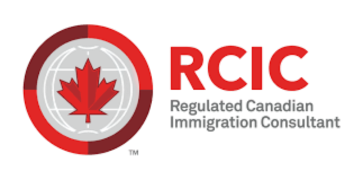Canadian Premier Doug Ford for More Immigration Power | GTR Worldwide

Provinces Demand Greater Control Over Immigration
A growing number of Canadian provincial leaders, led by Ontario Premier Doug Ford, are calling for more authority in shaping immigration policy. This development highlights a deepening divide between federal and provincial governments as labour shortages intensify across the country.
During a recent Council of the Federation meeting, Premier Doug Ford openly criticized the federal immigration minister, urging Ottawa to give provinces more influence over who gets to immigrate—and where.
“We know what’s best for our workers, our businesses, and our communities,” said Ford. “The federal government needs to stop dictating immigration policies from a distance.”
Why Provinces Are Pushing Back
Ontario, like many provinces, is facing critical labour shortages in essential sectors such as:
- Construction
- Healthcare
- Manufacturing
The Ontario government is advocating for greater autonomy in selecting immigrants through the Provincial Nominee Program (PNP) and other targeted streams. The goal: to fast-track skilled newcomers who can immediately fill gaps in the labour market.
Other Provinces Join the Movement
Premier Ford is not alone in this push. Provincial leaders from Alberta, Saskatchewan, and Quebec have also voiced their support for more localized immigration control.
- Quebec already operates its own immigration system under a special agreement with the federal government.
- Alberta Premier Danielle Smith echoed Ford’s sentiment, stating:
“We need to bring in workers who can contribute right away—not just wait for federal bureaucracy.”
Together, these leaders are putting pressure on Ottawa to revise the way immigration quotas and responsibilities are shared.
Ottawa’s Response: Immigration Is Still a National Priority
The federal immigration minister has defended the centralized system, citing the importance of national-level goals such as:
- Family reunification
- Humanitarian obligations
- Economic development strategies
“While provinces play an important role, immigration is a national responsibility,” said the minister.
However, critics argue that this approach fails to recognize regional labour demands and delays the integration of workers in high-need sectors.
What This Means for the Future of Immigration
This ongoing debate could significantly reshape the Canadian immigration landscape. If provinces are granted more control, we may see:
- Customized immigration pathways tailored to specific provincial needs.
- Streamlined processing times for provincial nominees.
- Greater settlement in smaller communities actively seeking population growth.
On the flip side, experts warn that decentralization could lead to inconsistencies in immigration standards and inter-provincial competition for skilled immigrants.
Final Thoughts from GTR Worldwide
At GTR Worldwide, we believe this growing conversation between provincial and federal governments is critical to the future of Canada’s economic growth. With smarter, more targeted immigration policies, Canada can better match international talent with real labour market needs.
As this story develops, we’ll keep you informed on how it could impact your immigration journey—whether you’re an applicant, an employer, or an agency partner.
📩 Need advice on provincial immigration pathways like PNP, RNIP, or AIP?
Contact GTR Worldwide today for a free consultation.
Stay tuned for more insights and updates on Canada’s evolving immigration system.


